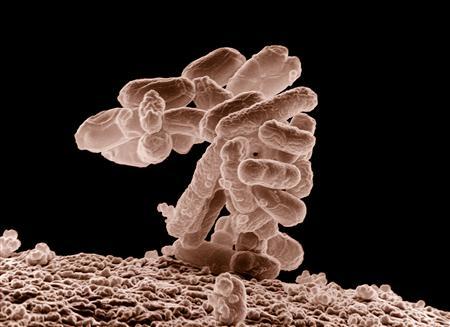
Researchers in
To fight the Pseudomonas aeruginosa bacterium, the scientists used a strain of the E.coli bacteria that is normally present in the human gut.
Researchers in
 To fight the Pseudomonas aeruginosa bacterium, the scientists used a strain of the E.coli bacteria that is normally present in the human gut.
To fight the Pseudomonas aeruginosa bacterium, the scientists used a strain of the E.coli bacteria that is normally present in the human gut.
They inserted into E.coli foreign DNA fragments that empowered it to sense the offending pathogen and quickly produce and release a deadly toxin.
"Once it (re-engineered E.coli) detects the presence of the aeruginosa, it produces a toxin ... and the killing molecule will be released to kill the pathogen," said assistant professor Chueh Loo Poh, a member of the research team at the
"Our engineered bacteria inhibited the growth of the (pathogen) by 90 percent," said lead author of the paper, assistant professor Matthew Wook Chang.
The team published their findings in the journal Molecular Systems Biology on Tuesday.
While many antibiotics unleash a blanket attack on both good and bad bacteria, the re-engineered E.coli targets specific invaders, in this case, the P. aeruginosa.
The same formula can be used to redesign other microbes to fight other infective agents, such as the Vibrio cholerae which causes cholera, said Chang.
"We can easily change the sensing device," he said.
Apart from offering possible new therapies, the team believes re-engineered bacteria can be made into probiotics and consumed in food such as yoghurt. Probiotics are live bacteria that are beneficial to their hosts.
The team is now testing its re-engineered E.coli on animals and hope to carry out clinical trials in people infected with Pseudomonas aeruginosa later.
(Reporting by Tan Ee Lyn, editing by Miral Fahmy)

 Previous page
Previous page Back to top
Back to top







